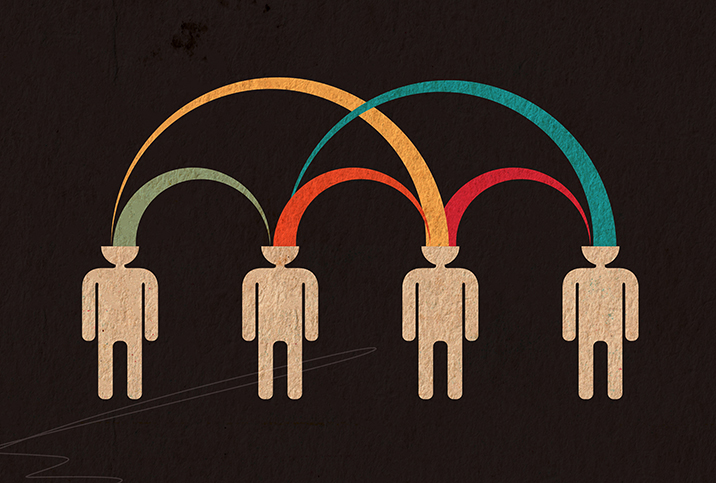What Are Men's Top Dating 'Icks?'

Key Points
- Dating 'icks' are those old familiar annoyances you find in people—chewing too loudly or being a bad dancer, for example.
- Sometimes, those icks are little things that won't seriously affect a relationship, but other times, they could signify something deeper.
- It's important to be aware of your own boundaries to make sure you're in a healthy relationship that works for you, regardless of the situation with the icks.
Dating 'icks'—we all have them. Those little things about a potential partner that shouldn't necessarily turn you off but do.
Let's dive a little deeper into the most common ways for men to catch the ick and whether we should be worrying about it.
What is an 'ick?'
As the name suggests, an ick is something that essentially grosses us out about a potential partner. Some icks are more common than others—for instance, activities such as hiking and escape rooms are often ranked as some of the 'ickiest' dates, according to a 2022 survey.
"An ick is most commonly known as something that's a turnoff, usually when you have a romantic interest in someone," said Christina Maxion, a Dubai-based matchmaker and dating coach. "Basically, it can be used to describe something that makes you uncomfortable or slightly freaked out."
'It is important to recognize and respect a partner's individual preferences and boundaries, including those that may give someone the ick.'
"Ick is that feeling of disgust—often which comes up subconsciously," said Jenn Kennedy, Ph.D., a licensed marriage and family therapist, board-certified sex therapist and founder of Riviera Therapy in Santa Barbara, California.
"Ick is personal (not universal), so we often say, 'Don't yuck their yum' in sex therapy. Someone may have an adverse reaction (ick) for any number of things: dirty counters, talking with mouth full, calloused feet, body odor or terrible dancing to name a few I've heard from couples," Kennedy said.
Icks can often be irrational and tend to be personal to our own tastes, Maxion said. It can be things as simple as clapping when an airplane lands, someone who chews with their mouth open or someone who is obsessed with star signs.
While these might be some of the funniest icks, there are some serious icks, too, such as fear of intimacy or repeated rudeness.
"It doesn't have to be something conventionally obvious," Maxion said. "It is super personal to the person feeling it. It can be the way someone speaks or even pronounces a certain word through to the bigger details like how someone treats a waiter. The fact of the matter is, once you get 'the ick' there is usually no return on that particular foible," Maxion said.
Where did the term 'ick' come from?
The term 'ick' has become a cultural turn of phrase that has become common online and in contemporary films and TV shows.
The term first appeared in Newsweek magazine in the 1970s before becoming more popular after being in an episode of Friends in the 1990s, Maxion said.
"Recently, the series 'Love Island' in the U.K. turned TikTok into 'IckTok' with the viral tales all inspired by a contestant's journey through the series," she said.
"It likely evolved organically and gradually gained popularity due to celebrities and influencers using it and popularizing it," said Becky Spelman, B.Sc., a counseling psychologist and founder of Private Therapy Clinic in the United Kingdom.
What behaviors give men the ick?
What are the biggest icks for a man? Men are less likely to use the term than women, Maxion said.
"You rarely hear men using the phrase—but 'turn offs'? Most commonly, I hear about things such as 'duckface,' the weird pout that women strike in social media selfies or whenever there is a camera on the scene," she said.
Some men may list exaggerated makeup or eyelashes as an ick.
"'Baby voices' or women infantilizing themselves can also be a turnoff, too," Maxion said.
There are some icks that tend to be universal for men and women.
"It is important to recognize that generalizing the behaviors that give men the ick can perpetuate stereotypes," Spelman said.
Some of the common icks for men include the following:
- Poor hygiene or grooming habits
- Disrespectful or rude behavior toward others
- Arrogance or excessive self-centeredness
- Lack of empathy or emotional intelligence
- Inauthenticity or dishonesty
- Lack of ambition or motivation
- Being overly possessive, controlling, dependent or clingy
- Poor communication skills or inability to listen
- Ignoring or dismissing consent and boundaries
Recommended
- Are You Staying in a Toxic Relationship Because the Sex Is Great?: If incredible sexual chemistry is a couple's only redeeming quality, experts have some advice.
- On a Boring Date? It Could Be a 'Beige Flag': Dating shouldn't be a bore. Learn how to spot potential predictors of incompatible partners.
- What Is the Science Behind Love—and Lust—at First Sight?: Falling for someone in seconds seems great. But is it really just lust?
Does it matter if certain things give some people the icks?
These examples of icks aren't universal. Things that turn off some people might turn others on.
"It is important to recognize and respect a partner's individual preferences and boundaries, including those that may give someone the ick," Spelman said. "Certain behaviors or traits may not appeal to some individuals, but it is essential to avoid generalizing or stigmatizing those who exhibit them. Ultimately, what matters most is maintaining healthy and respectful relationships where each person feels comfortable, understood and supported."
Icks don't always have to be deal breakers, Maxion said.
"Nobody is perfect, and our expectations of romantic partners should reflect this in a mature relationship," she said. "It's perfectly normal to have personal quirks and for those to sometimes grate on others. We are all different. It's about boundaries—what's the true deal breaker?"
When does an ick become a red flag?
While some icks are just a matter of personal preference, other icks may be a warning sign of a bigger issue. Are icks sometimes dating red flags? "The ick can become a red flag when it crosses the boundaries of what's acceptable to you, your relationships and your future goals. From politics to financial, religion or even the way they act socially—if any of this has a negative effect on you yourself and what you want out of a relationship, it's an indicator of what your future can look like. You make the call," Maxion said.
Keep an eye out for icks that include the following, Spelman said:
- Repeated patterns
- Emotional or physical harm
- Lack of accountability or willingness to change
Why do I get the ick so easily?
If you find yourself constantly getting the ick about potential partners, it may be worth noting the pattern. It might even be worth trying to push through your icks to see if you can get past them after a few dates.
You might even want to try the 90-day relationship rule.
"I find that those who are more persnickety or unprepared for real intimacy may have excessive icks," Kennedy said. "They are looking for reasons to reject others. Those who are rigid, OCD or guarded will reject others for minor perceived ick violations, which keeps them apart from others. Ideally, an ick is an opportunity for discussion—not an immediate ejection. It takes patience, vulnerability and openness to discuss preferences."
"If you are an ick addict and find yourself barely getting through a first conversation without feeling icky, you need to ask yourself why and if your personal standards are so high that you are negating any chance of true connection," Maxion said.
Looking for perfection won't get you anywhere.
"We are all human, and ruling out potential partners so quickly over relatively minor icks means that you could really be missing out. Check in with yourself," Maxion said.
If you really can't get past your icks, it's important to listen to your instincts—don't ignore the ick, no matter how banal it may seem.
"Experiencing the ick feeling more easily doesn't necessarily mean there's something wrong with you. It's part of your unique emotional makeup and can help guide you towards healthier relationships and personal well-being," Spelman said.
Is it possible to have too many icks?
Do you have an ever-growing list of icks? It may be time to reassess your own habits.
"It is important to find a healthy balance. Having too many icks or experiencing them too frequently could hinder your ability to form connections and relationships. Self-reflection, open communication, and support from trusted friends and family can help you to navigate these feelings," Spelman said.
Is it OK to dump someone after having an ick?
It's always up to you whether you want to end a relationship. If you decide a relationship isn't right for you, you should always feel free to end it, even if it feels like your ick is too small to warrant a breakup.
One of the biggest dating misconceptions is that icks are just silly tricks of the mind. Sometimes, they're worth paying attention to.
"If the ick is constant or goes against your personal values or standards, then it's not a relationship with a future," Maxion said. "Weigh it up. That ick you can't quite put your finger on? That's usually a sign that there is something deeper at play, and that you either deal with that issue or call it quits."
The bottom line
As always, be careful about jumping to conclusions about dating trends you see online. We've all witnessed plenty of women's health misinformation on TikTok. The same goes for the dating world.
If you're worried about your icks, it may be worth speaking to a relationship therapist who can help you break down whether your icks are worth paying attention to or if they're something you might be able to get past.


















